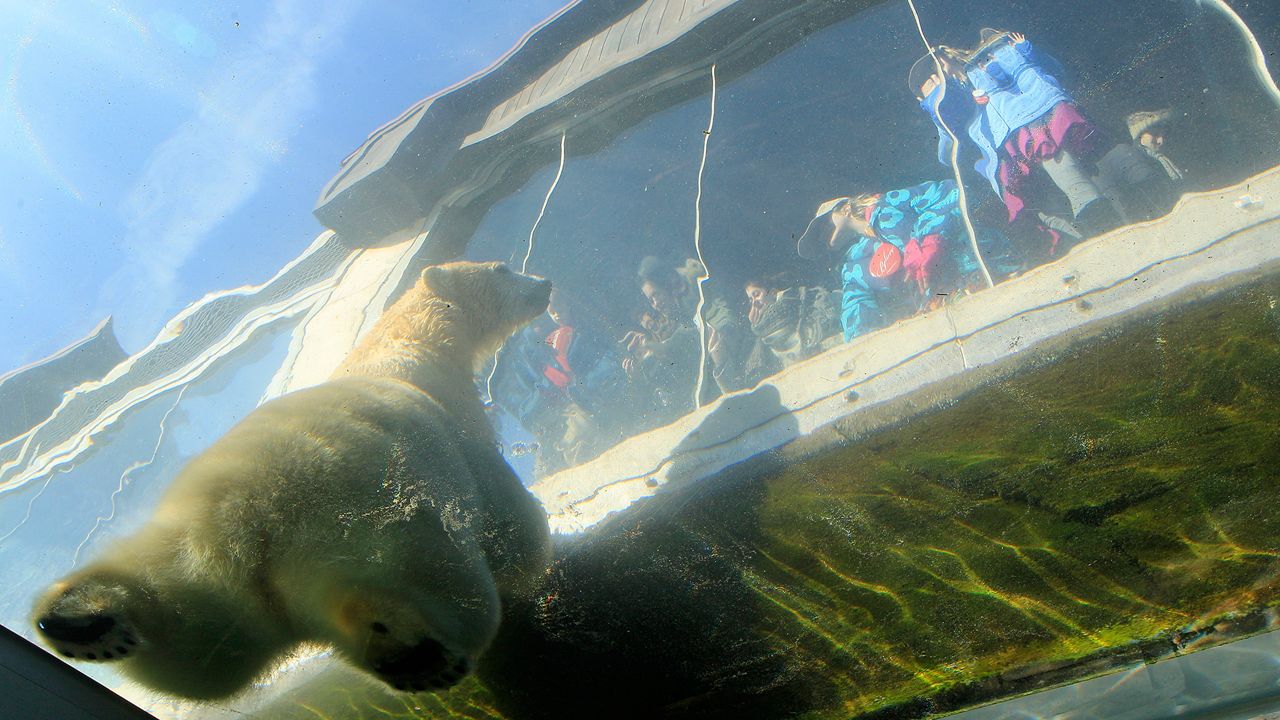COLUMBUS, Ohio — The Columbus Zoo and Aquarium said it plans to appeal the decision made by the Association of Zoos and Aquariums to deny the prestigious zoo accreditation.
Jan Ramer, senior vice president of animal care and conservation, said the zoo was "shocked" by the decision announced by the AZA on Wednesday.
The decision comes as the zoo announced a number of reforms in the wake of several scandals that resulted in the zoo hiring a new CEO.
“We feel like at the time of the inspection we had made the changes that we needed to make," Ramer said. "And that we were an institution that could be accredited and the AZA recognized those changes, right? But they want to see sustained change.”
An AZA commission evaluates operations and animal welfare at zoos. Losing accreditation could affect which animals are brought in to the zoo and could pose a risk for the loss of funding, depending on whether the decision affects the trust of donors.
The lack of AZA accreditation could also restrict staff from continuing their roles in Species Survival Programs and prevent participation in breeding programs, which could impact species conservation programs, according to the zoo.
"The accreditation visiting team commended the Zoo on 17 points of exemplary work in all aspects of Zoo operation, and the commission’s vote was not unanimous," the Columbus Zoo wrote in a press release Wednesday morning.
The denial follows a challenging year for the Columbus Zoo. In March, former CEO Tom Stalf and the former chief financial officer, Greg Bell, each resigned after allegations surfaced that they cost the institution more than $630,000 by misusing the property for personal profit, such as allowing family to live in zoo-owned houses and giving out no-bid construction projects.
The misuse of funds was a point of contention with the commission, which is still under investigation by the state of Ohio.
"Every animal at AZA-accredited institutions undergoes a thorough welfare assessment at least once a year," the AZA said about its process. "We also make sure that animals are provided with enrichment, which stimulates each animal's natural behavior and provides variety in their daily routine. The Accreditation Commission also evaluates the veterinary program, involvement in conservation and research, education programs, safety policies and procedures, security, physical facilities, guest services, and the quality of the institution's staff."
The Columbus Zoo believes rather than deny it accreditation, the commission could have postponed the evaluation by a year to see if the zoo could sustain changes after the former leadership resigned.
“At the time of the AZA inspection by the visiting committee in July, we believe the Columbus Zoo and Aquarium met the AZA standards required for accreditation. The poor decisions of a handful of people should not negate the good work this team does and how much staff members contribute to the AZA through committee work and leadership roles. Nobody currently working at the Zoo had anything to do with the position we find ourselves in today," said Jerry Borin, interim CEO and President of the Columbus Zoo and Aquarium. "We’ve acknowledged the wrongdoings of the past. We’ve also made changes and updated policies to ensure those cannot happen again."
Ramer placed blame on administrators no longer with the zoo.
“We are furious that the decisions and actions of a few individuals in leadership positions, individuals who are no longer at the zoo, have resulted in where we are today.”
Aside from the allegations of misusing funds from former management, a recent documentary also makes allegations against the zoo's former director, Jack Hanna. "The Conservation Game" claimed Hanna had ties to the big cat trade across the country, and since then, the zoo has cut ties with animal organizations that were mentioned in the film.
"Since the film's limited public screenings, I have been encouraged by the actions and statements from the new leadership at the Columbus Zoo," said "The Conversation Game" film director Michael Webber in a statement to Spectrum News 1.
He said he fully supports the zoo's recent attempts to change operations in the last few months, but said Hanna and previous leadership "boldly broke basic conservation efforts" and believes the AZA made the right decision.
Carney Anne Nasser, who was featured in the film and is a research fellow with Harvard's Animal Law & Policy Program, echoed Webber's thoughts.
"The AZA and the Columbus Zoo are taking necessary first steps to ensure that they and their colleagues in the zoological community are no longer participants in exploitation in the name of conservation, but it is up to us as consumers and donors to hold our institutions to a higher standard and ensure that the exploitation depicted in 'The Conservation Game,'" Nasser told Spectrum News 1.
The AZA acknowledged some of the allegations levied against the zoo.
“Issues of financial mismanagement have been reviewed by an independent forensic analysis and reported on in the media," Dan Ashe, AZA President and CEO, said in a statement. "Those issues alone are serious. More substantial and concerning is a long record of intentional and repeated animal transfers with non-AZA members intended to supply baby animals – mainly big cats – for entertainment purposes."
Since the former CEO and CFO left, Borin said the zoo has made a number of changes to prevent something similar from happening in the future. The changes include:
- The return of former CEO/President Borin as interim CEO/president
- A new CEO, which will be Tom Schmid starting Dec. 6
- Named Jan Ramer, former vice president at The Wilds, as Columbus Zoo and Aquarium senior vice president of Animal Care and Conservation
- Immediate change of reporting structure of Animal Programs department to the vice president of Animal Care instead of the chief financial officer
- Ambassador Animal Program moved under the vice president of Animal Care, which reports to senior vice president of Animal Care and Conservation
- Evaluation of and changes to Ambassador Animal Programs
- Ending relationships with all vendors highlighted in The Conservation Game film
- Updating all non-AZA institutional profiles and enhancing oversight of approvals
- Commitment to life-long welfare of current and retired Ambassador Animals, as is the case with other animals in the zoo’s care
The zoo said the ruling will not affect those who visit as well as the experience. The appeal must be filed by Oct. 30.
Spectrum News 1 reporter Katie Kapusta contributed to this report.
Oct. 6 Editor's Note: This story has been updated to reflect the correct spelling of Michael Webber's name.









